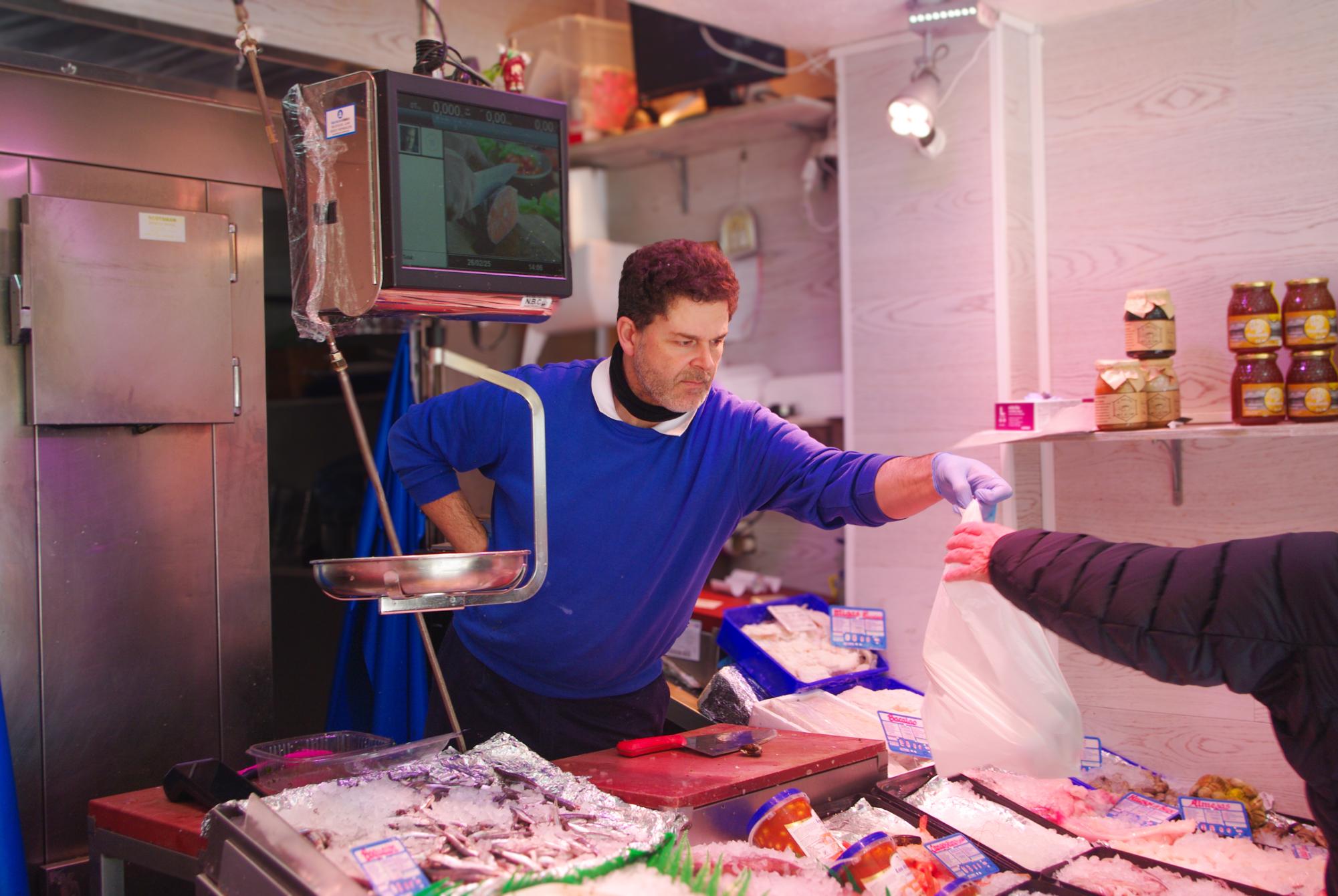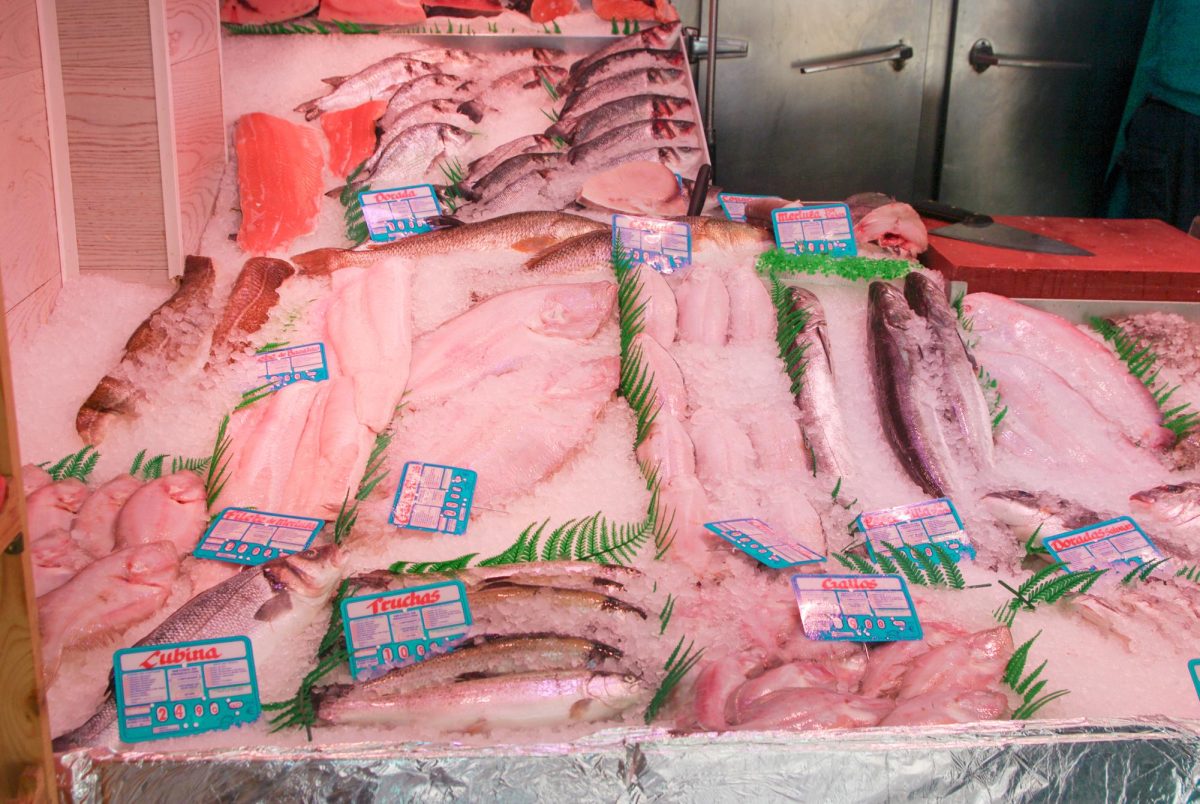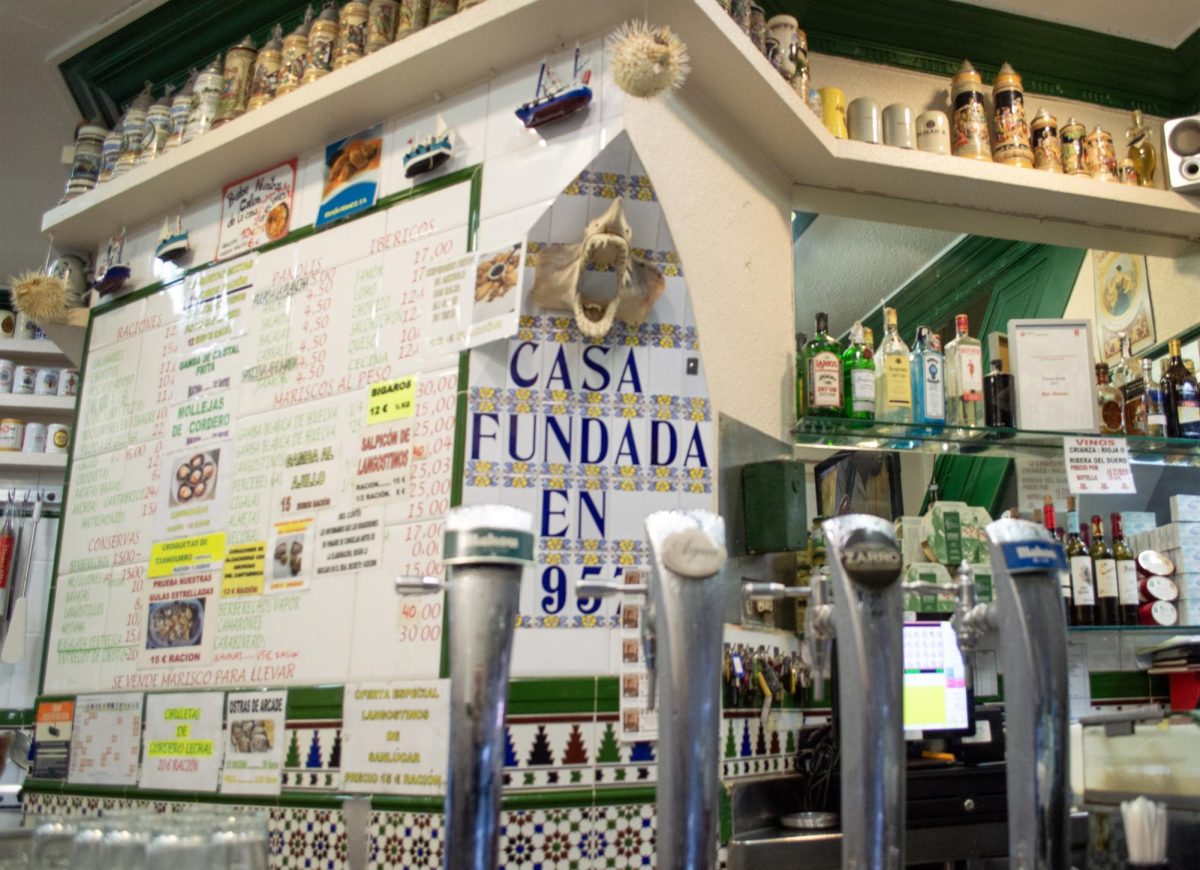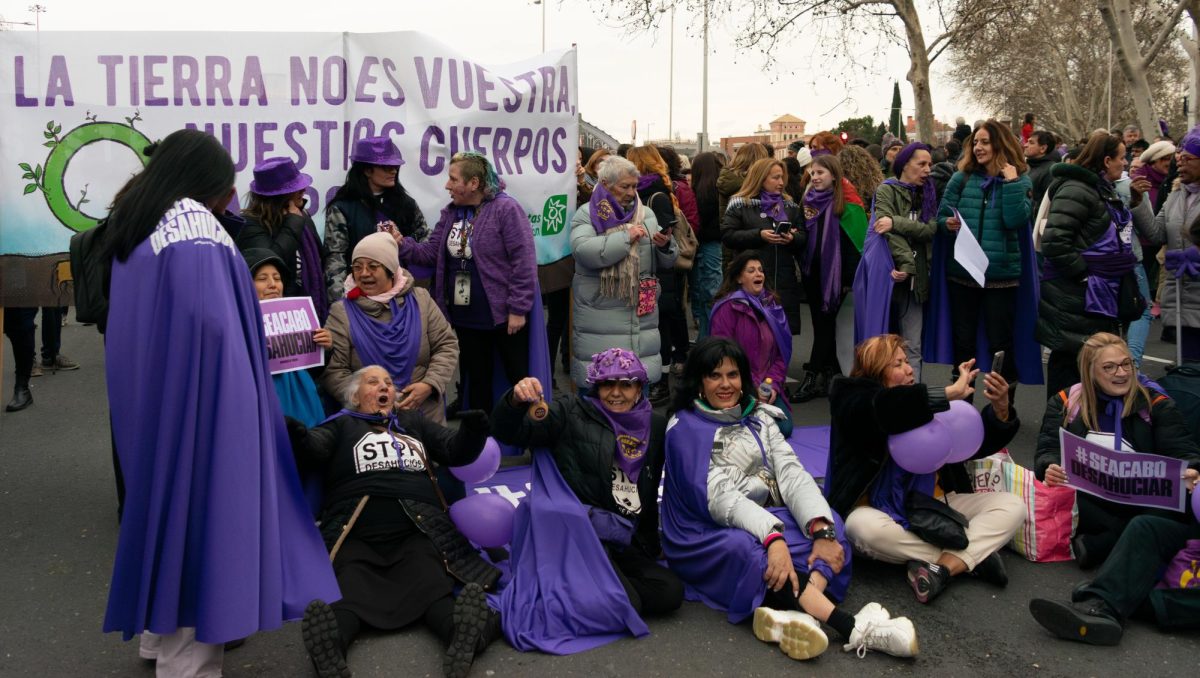A Glimpse Inside Madrid’s Small Shops

At first glance, Pescados Marín might seem like just another fish market, but the more you talk to the owner, David Marín, the more you realize there’s a lot more going on. “I come from a fishing family,” he says. “I’m a fisherman by tradition, this business is part of who I am.”
The shop opened in September of 2021 near Avenida de la Ilustración metro station, Marín takes pride in what he does. “It’s not just about selling fish,” he says. “ It’s about offering something better — better quality, better service and better prices. I want people to feel like they’re getting fresh, high quality products every time they come in.”
However, getting the business off the ground wasn’t easy. “Opening a store is complicated,” he says. “There are so many rules, taxes and papers to deal with, and honestly big companies get so much support from local authorities while small businesses like mine are left to figure it all out.”
He feels that large businesses have advantages that make it hard for smaller shops to compete. “They control everything,” he says. “They get land deals and other support. It’s tough to get by when you don’t have those connections.” But he remains determined to keep his store going.
One of the things that sets his shop apart from the big chains is how hands on he is. “I choose all the products. I set up the displays. I’m the one who makes sure everything looks right,” he says. “I don’t do the actual preparation, but I supervise it to make sure it meets my standards.”
It’s this kind of attention to detail that makes his shop stand out, he says. He believes his personal touch is what makes the difference. “We don’t have all the red tape that large stores do. We don’t have to deal with middlemen,” he says. “We can just focus on what’s best for our customers.”
For Marín, the business isn’t just about making a living. It’s about building a relationship with the community. “The reason we’re still here is because of the people who come back,” he says. “It’s the quality of our products and the care we put into them that keeps the customers coming back. They know we’re looking out for them.”
Nestled in Madrid’s residential Chamartín district, the modest Cervecería Alonso has attracted locals and tourists since its founding in 1957.
The bar’s journey began with its founder, Dionisio Alonso. Over the years, it was managed by his son, Julio, and is now under the stewardship of José, who has dedicated 42 years to the establishment and began working at the bar at 17.
“I’ve worked here all my life, and I love it,” José said. “It’s hard to explain that feeling, starting to work for someone and now owning it.”
Stepping into Cervecería Alonso feels like stepping back in time. The walls are adorned with vintage photographs from the bar’s early days and shelves lined with a collection of mugs, gifts from loyal customers from around the world. Customers will also notice a framed set of “rules” for eating tapas with beer the “right way.”
Cervecería Alonso still attracts an international crowd. It has been featured in various interviews and was highlighted in the magazine Madrid Viva. José notes, “We have many customers daily, and due to the popularity, many tourists also visit.”
The bar’s atmosphere is especially lively during lunch and dinner hours. The space is often packed with people of all ages—from young adults in their 20s to seniors enjoying a relaxed evening. The air is filled with animated conversations, the clinking of glasses and the aroma of traditional Spanish tapas. The most popular dishes are callos, patatas bravas and croquetas, according to José, who also serves as the chef.

At Daniela Camino’s La Tienda de Los Deseos, thousands of dreams are captured on small pieces of paper. Camino’s small business located on Calle de la Escalinata offers writing workshops, personal story commissions and activities for children, but it is best known its wall of wishes, where customers write their dreams onto cards and tie them next to hundreds of others. Camino’s store may be small, but her drive to “bring illusion to the people”is big.
Hers is one of many small and medium businesses in Madrid. When asked why she wanted to open up her business in the first place, Camino exclaimed, “I wanted to make something unique!” she said. “There isn’t a place like this in the whole world!”
Before opening La Tienda de Los Deseos, Camino was a creative director at an advertising agency for twenty-five years, but she eventually discovered a longing to create something of her own – an idea inspired by her daughter. The store, originally called Peque Story, began as a way to “capture the special moments” in the life of children like her daughter. Eventually, her business grew, but not in the way she expected–what started out as a means to record children’s lives ended up being a place for adults to reconnect with their youthful aspirations.
Her business has been promoted on TikTok and the American television show, The Bachelor, which recently released a one-on-one date filmed at Camino’s store. Camino said the store received “over 40,000 wishes in just two years,” written in multiple languages. She said they never throw any away, ever. Camino also explained that her reasoning behind the wish notes stems from her deep love of writing (she is even publishing her own fantasy novel very soon). She noted that, when coming to her store, “people leave behind their cell phone for a few minutes and they write on paper, and their faces change!” Doing so, she says, “is good for the soul.”
Camino believes in the power of wishes. “If you think positive thoughts, you attract positive things,” she said.
How to write a wish? “You have to write wishes and live as though you already have them, not in the future tense but in the past tense,” she says.
Over the years, Camino has come across all sorts of customers with dreams of all shapes and sizes. One reads, “To find my place in the world,” and another: “Very good health for the whole family.” Some are light-hearted, such as the one that asks, “Where are you my king?” with a phone number attached; however, some are heavy, like the boy who wished to reconnect with his father – a dream Camino said eventually came true.







